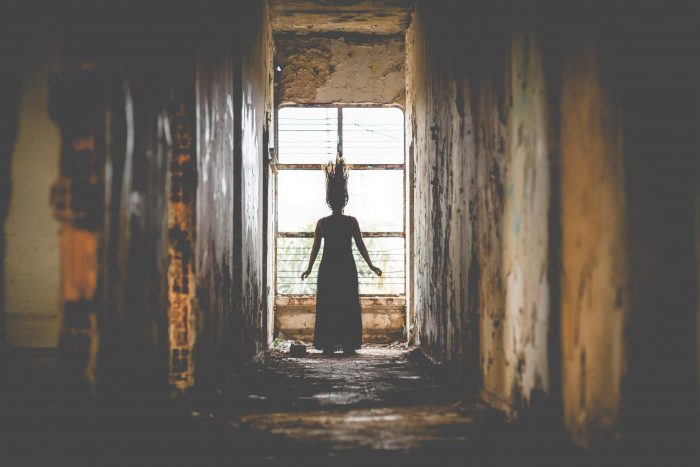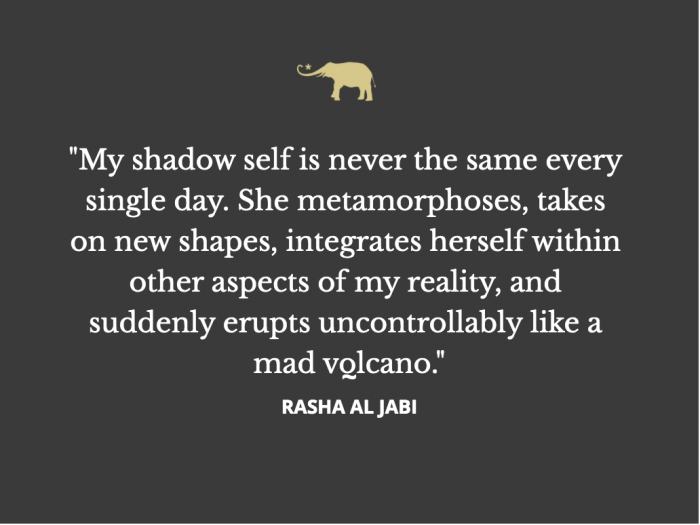“The shadow is a moral problem that challenges the whole ego-personality, for no one can become conscious of the shadow without considerable moral effort. To become conscious of it involves recognizing the dark aspects of the personality as present and real. This act is the essential condition for any kind of self-knowledge.” ~ Carl Jung
~
I was seeing a therapist last year who told me the story of Beyoncé’s alter ego, Sasha Fierce.
She told me that when she attended her concert for the very first time and later met her, she thought she was one of the shiest, most introverted people she had ever seen.
Back then, I was going through some major life transitions: stress at a new job, relocating to another country, and all the ambiguity that the future holds.
I was also processing a lot of grief and complex trauma symptoms which were amplified by the pressure of trying to prove myself at a new job and not being able to set boundaries, like many people-pleasers.
And then, of course, came the pandemic.
“I don’t sense anything clinically alarming, but I do see a bit of an ‘identity crisis,’” she said on our first session.
I was telling her how despite the intelligent, hardworking person I believe myself to be, I would always succumb to self-ruminating thoughts, fears, and pulsating anxieties where I would feel my heart thump through the cavity of my chest, my palms relentlessly sweat, and my breath become shallower whenever I had to deliver a speech in front of an audience or do anything where I had to be seen.
She smiled and simply said, “I think you might need to develop an alter ego, just like Beyoncé.”
She also said that feeling anxious about something, even when the reactions are unfavorable, goes to show how much we care about that “thing” and is a testament to our own values and morals, and that is never a bad thing.
When I relocated to Canada last September, I decided to cease therapy and to seek someone who lived in the same city where I moved. But shopping for a therapist was extremely challenging given the multiple pandemic lockdowns, not to mention the added complexities of starting life in a new city.
I recently met someone who told me, “I feel like there are two opposing personalities living within you. One who is fierce and waiting to come out, and the other one who resembles a tiny, shy mouse.”
I smiled at the analogy, but I had to agree.
I ended up telling him the story of the alter ego I developed, the one who resembles Wonder Woman with the head of a fierce, giant dragon, which is exactly how I picture myself whenever I feel self-love and contented with life.
We all know that part of ourselves—the social, friendly persona—who comes out to play after they had a couple of drinks, who dives toward life, heart first, who faces life’s challenges with courage, openness, and vulnerability, and who loves harder each time following a heartbreak.
We all love the parts of ourselves who are filled with life force, passion and feel ready to take on the world.
And lately, I’ve been feeling a deep sense of melancholy. I miss that person. I miss the person I used to be.
To me, that person who felt alive and ecstatic used to come out while I was traveling or moving or accomplishing or doing or going from one place to another. Action is what gave me hope that life will get better (will, being the keyword here).
But ever since the pandemic broke out last year and my recent relocation to another continent, I can’t shake off the feeling of being lost, stuck, and rigid. I feel trapped inside my own body, inside my own thoughts, inside my own feelings, consumed by the energy of my anxiety with no place to disperse it.
For the longest time, I thrived on embracing my alter ego. She kept me alive and pulsating with enormous energy that, at times, felt bigger than my own body’s capacity to handle.
She made me feel invincible—like there was nothing I couldn’t do. Maybe it was the nativity of being young; maybe it was the energy of trauma that fed my hunger to fidget, accomplish, and move, but I did genuinely believe I could do anything I set my mind to.
But then, came my shadow.
According to the Swiss psychiatrist, Carl Jung, our shadows are those parts of our personality that we choose to reject or repress, either because we don’t like them or we believe society won’t.
But according to Jung, those parts don’t miraculously just disappear; they simply get pushed deep down into our subconscious minds until we grow unaware of them.
My shadow self is never the same every single day. She metamorphoses, takes on new shapes, integrates herself within other aspects of my reality, and suddenly erupts uncontrollably like a mad volcano.
Lately, my shadow has been taking the shape of anger, an emotion that I have been repeatedly shamed for growing up until I convinced myself that feeling anger is poisonous, immoral, and unholy. So I adopted the “nice girl” figure instead, hoping that it will give me the validation I once sought.
What we, trauma survivors, must understand is that this is all a normal process. Growing up, we don’t have the vocabulary, autonomy, or freedom to become separate from our caregivers. So it is natural for our bodies to push down our shadows and to turn into someone else whom we think will likely be accepted.
This is our body’s intelligent way of helping us survive the pain of not being loved, seen, heard, held, caressed, welcomed, hugged, or simply accepted for who we are.
As helpless little children, we would favour self-abandonment over knowing or slightly feeling we are unloved by the very people whom we looked up to for protection, warmth, attachment, and survival. But as we turn into independent grown-ups, this self-abandonment often turns into anger toward ourselves, feelings of failure, people-pleasing tendencies, or never enough-ness thoughts. This is at the core of every trauma story I’ve ever heard or read.
But if we dig deeper, we realize that our shadows are simply our inner child, looking at our adult selves while seeking the same warmth, love, and protection they never had from our caregivers.
As we grapple with the aftermath of our own trauma, we realize how messy stepping into this territory is. As the cliché phrase goes, “Healing is never linear,” and sometimes, we feel like we’re constantly wrestling with our own shadows, catching our own tails, and always being defeated.
I feel the heavyweight of my own shadows too.
But in times when I am challenged, I ground myself, with both feet firmly planted on the grass, and remind myself of the reasons I am committed to doing the work in the first place.
If we dig deeper, we realize that it isn’t because healing is pretty or fancy or looks great on our resume or Instagram feed. No. But if we’re awakened enough, we understand that beneath the messy humans who we are lies a deep potential to tap into our creativity and the most precious, vulnerable part of ourselves.
Some call it post-traumatic growth, some enlightenment, some ego-death, and some rebirth.
Part of emotional maturity lies in realizing that pain and pleasure are intricately intertwined, just like light and darkness and the moon and the sun are. We can’t have one without the other.
Understanding the complex interconnectivity of our emotions only brings us closer to self-compassion instead of our habitual tendency to shove down what we hate about ourselves, which is easier said than done.
I keep falling back into the trap of self-sabotaging, self-abandoning, and self-rejecting, but each time I learn something new. I learn that healing simultaneously comes with the ability to forgive ourselves for our setbacks and to gracefully grieve all the heavy parts that need to be shed.
Each time we are triggered by our past and our natural inclination is to shove down our shadows and embrace apathy, we must remember that we cannot be desensitized to pain without equally being desensitized to pleasure, which would be unfortunate.
Can we imagine a world where no colors, no flavors, no sensations, or no stimulations exist? What would that be and feel like?
Healing from trauma must involve slowly and compassionately integrating our rejected shadows into a safe place where we can understand our stories without panicking, dissociating, disconnecting, or abandoning ourselves.
Otherwise, what’s the other (better) alternative we have?
It is as the late philosopher and spiritual teacher, Alan Watts, once said:
“This, then, is the human problem: there is a price to be paid for every increase in consciousness. We cannot be more sensitive to pleasure without being more sensitive to pain.”
Healing is the greatest conundrum of our human experience. It is a mystery. It is a puzzle that we will only figure out one piece at a time. But each time there’s an opening to feel something, an anything, despite how unfavorable, murky, and damp it might feel, there’s a potential to heal.
And wherever there’s potential, there’s also hope to hold on, not in spite of our shadows and rejected selves, but because of them.
There’s a reason to choose to stay alive.

 Share on bsky
Share on bsky






Read 21 comments and reply